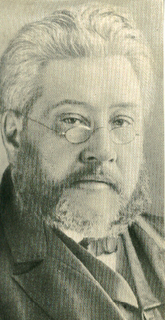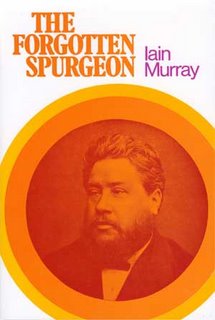
In the last post on Christian unity we saw the arguments for outward unity in churches had some major problems with it. Some of which were that it would eventually mean that true Christians would for "unity's" sake would have to endure heretics to be in their midst preaching error. I argued that in the biblical sense the unity spoken of means essentially that the body of Christ would both weep with those who weep and rejoice with those who rejoice within the body 1 Cor 12:25-27 (this means bearing burdens for people we may not ever meet Rom 15:26) . This sort of unity transcends location, ethnic cultures, race, age, buildings, wealth, etc. Also, in light of scripture there are to be divisions made, the true church is to divide itself from those who teach error (Titus 3:10). Concerning true doctrine (the good deposit) we are given a call by Jude to contend for the faith saying:
"Beloved, although I was very eager to write to you about our common salvation, I found it necessary to write appealing to you to contend for the faith that was once for all delivered to the saints. For certain people have crept in unnoticed who long ago were designated for this condemnation, ungodly people, who pervert the grace of our God into sensuality and deny our only Master and Lord, Jesus Christ. " (Jude 3-4)
Out of all this I argued that biblically there are good divisions believers are called to make. Reading Iain Murray's book "The Forgotten Spurgeon" continues to validate this view of separation. Spurgeon in his day was in the midst of several controversies, and knew very well what it was to divide over truth. Yet divide we must, for unless lines are drawn in the sand the deposit will be continually chipped away at until there is nothing of it left. On divisions Spurgeon writes:
"I glory in that which at the present day is so much spoken against sectarianism I find it applied to all sorts of Christians; no matter what views he holds, if he be a man in earnest, he is sectarian at once. Success to sectarianism; let it live and flourish. When that is done with [sectarianism] farewell to the power of godliness. When we cease, each of us, to maintain our own views of truth, and maintain those views firmly and strenuously, then truth shall fly out of the land, and error alone shall reign."
Spurgeon is saying that unless the truth is so precious to us that we are willing to divide over it, the truth will eventually be eroded by error. Thus, Spurgeon says basically Hooray for divisions! Hip Hip HOORAY for denominations! For the fact that denominations have formed is because
 men loved the truth enough to divide. I think I agree. I have a greater deal of respect for Christians who I disagree with over issues like Calvinism, WHO WILL disagree with me, rather than those who pacifistically mumble "Lets not get into controversial issues." The latter is NOT the spirit of Bunyan's Mr. Valiant for truth, for EVERY truth of scripture is in its nature controversial. So praise God for men with spines who broke away from the PCUSA (which now ordains lesbian pastors) to form the OPC and PCA denominations. Praise God for men of controversy!
men loved the truth enough to divide. I think I agree. I have a greater deal of respect for Christians who I disagree with over issues like Calvinism, WHO WILL disagree with me, rather than those who pacifistically mumble "Lets not get into controversial issues." The latter is NOT the spirit of Bunyan's Mr. Valiant for truth, for EVERY truth of scripture is in its nature controversial. So praise God for men with spines who broke away from the PCUSA (which now ordains lesbian pastors) to form the OPC and PCA denominations. Praise God for men of controversy!For the day the church decides to stop guarding the deposit is the day error will reign. Error thrives in the anti-controversial environment, it is the very nourishment which it needs. All the enemies of the gospel need is for the saints to become gutless mealy mouths who will not raise the sword of the word to defend the gospel against its foes, because after all many foes wear the "Christian" uniform, and to contend with them would be divisive. For error to infiltrate the church requires men who love not the truth enough to fight for it. Thus, the opposite is true, as Spurgeon writes:
"As to a breach of unity, nothing has ever more largely promoted the union of the true than the break with the false."
Nothing promotes unity within the church greater than putting fences around the deposit, thus keeping error out. We must no overlook the fact that by putting fences around the deposit we may find that this will result in a breaking away from men who are at least brothers in name. However, this is for the health of the flock, fences of doctrinal statements are parallel to boundaries of where the flock may graze, they mark the land Immanuel has given His sheep to feed on, to go outside the fences is not safe, and good shepherds will put up fences for the sheep's sake.
Now we think it an easy judgment call to break away from Rome, or men like Joseph Smith who are clearly in error. Yet it becomes difficult for us to bear when those whom we are at least outwardly dividing from bear the name of evangelical, profess faith in Christ, and hope in His coming are we to have divisions among these ranks also? Are we to divide over matter of baptism, or predestination? As a Calvinist I can recall when I too was thoroughly Arminian in my thinking of election (though I probably wouldn't know what Arminian meant), yet I know that I was saved and washed in Christ though in error theologically.
So this gets somewhat difficult, yet I think the same principal stands that Calvinists and Arminians alike need to bear burdens, care for the sick, lift up the down trodden rejoice with those who rejoice whether Calvinist or Arminian. Likewise we can say of baptism, different views of baptism paedo or confessional are not the grounds for entrance into the body. However, these are biblical issues and it is impossible to have a church that is firm in truth that whole heartily supports both infant and believers baptism, likewise with predestination. Thus, the most reasonable thing to do is have different buildings, because these issues DO matter. To say that
 these issues do not matter and should be swept under the rug to achieve a unity is to say that something the bible makes a stance on does not matter. There is no doctrine of scripture that is unimportant, therefore there is no doctrine of scripture not worth fighting for. Spurgeon on this matter:
these issues do not matter and should be swept under the rug to achieve a unity is to say that something the bible makes a stance on does not matter. There is no doctrine of scripture that is unimportant, therefore there is no doctrine of scripture not worth fighting for. Spurgeon on this matter:"If you say that any one part of the truth is unimportant, you do as good as say - to that extent the Holy Spirit has come upon an unimportant or valueless mission. You perceive it is declared that he is to teach us "all things"; but if some of these "all things" are really of such minor importance, and so quite non-essential, then surely it is not worth while disturbing our minds with them. And so to that degree, at any rate, we accuse the Holy Spirit of having come to do what is not necessary to be done; and I trust that our minds recoil with holy repulsion from such a half-blasphemy as that..."
Out of all this I am mainly trying to say that denominationalism is a good thing, and all to often it seems that those furiously who object to it are not thinking theologically. I recall receiving from a speaker in my early years as a Christian a sort of rearranged "I have a Dream" speech with about 10 dreams. 1 of which was that the denominational barriers would be torn down another of which was that all Christians accept the teaching of spiritual gifts for today! Even at the time I thought this was problematic, there are Christians who don't think that way and you are lamenting the denominational divisions so how do you solve the problem...They all need to think like me!
Which brings me to my final point out of much of the talk today about church unity a new ecumenicalism is emerging. Like the old it overlooks doctrinal truth as superflous, the main mission of the church is to feed the poor, clothe the naked, and teach the ignorant (What about that great commission thing Jesus was going on about?). Just like old liberal ecumenicalism, there is nothing new under the sun, same heresies just keep getting recycled. You can't have the great commission and ecumenical stances on doctrine, because to fulfill the great commission requires defining the message which we are to bring into all the world. When we define the message, if it is biblically defined we will find that many "evangelicals" simply don't agree. For instance that Christ is the only way. So if we are to fulfill Christ's call this will require a guarding of the deposit which will practically cause divisions.









2 comments:
I pretty much agree. If you value the truth you have to stand up for it. I don't want to be an a big amoeba church that is all wishy washy just for the sake of faux unity.
In order to have true unity you have to believe what your organization stands for and stand behind that.
Also, so many churches are opening the doors wide open to sin - I don't want to be in an organization that does this.
'Unity' and 'Tolerance' have come to mean, I'm OK, you're OK instead of being polite and civil to people you completely disagree with. A lot of people think they are tolerant but really they are apathetic and have no convictions.
There is a lot of New Age hocus pocus in Christian thinking. I can spot it cause I was in New Age.
I don't agree w/Calvinism but I do agree w/a lot of the things on your website.
Praise God, I think you made a good comparison of the modern use of "Tolerance" versus the original meaning when you said:
"'Unity' and 'Tolerance' have come to mean, I'm OK, you're OK instead of being polite and civil to people you completely disagree with."
The modern definition of tolerance calls for us to really comprimise our values and become like you said apathetic. It's a bummer because much of evangelicalism is purposely following the steps of the culture with the hope of being relevant to the culture, (sounds nice) but it almost always ends with the church's message becoming a mere echo of the culture, rather than counter cultural. Of course one of post-modernisms values is this "tolerance" so this attitude is begining to drive many churches in a new ecumenicalism. This new ecumenicalism (if it is going to even be possible) charicteristically has a low view of doctrine, and thus is really apathetic to truth.
"I don't agree w/Calvinism but I do agree w/a lot of the things on your website."
Yeah, it's cool but that's kinda my point, we have a unity even though we disagree, because we love the same Jesus and trust His work to save us.
Post a Comment